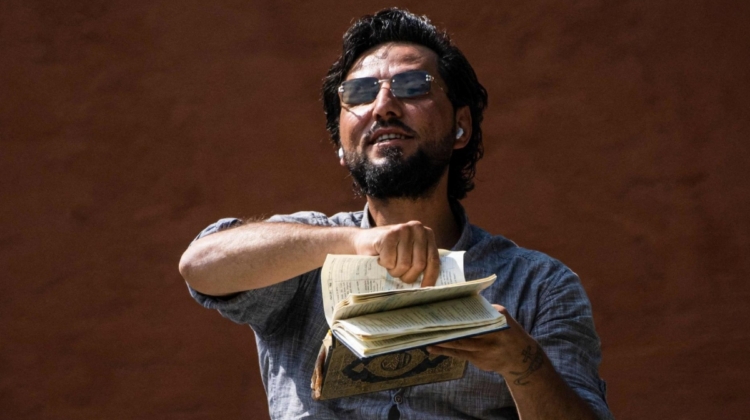Before Salwan Momika, Others Were Targeted
Defending the freedom of speech is dangerous business.

|
Getting your Trinity Audio player ready...
|
[Want even more content from FPM? Sign up for FPM+ to unlock exclusive series, virtual town-halls with our authors, and more—now for just $3.99/month. Click here to sign up.]
When the Islamic Republic of Iran called for his death for insulting Islam, Salman Rushdie became an international hero of free speech. Later defenders of this fundamental freedom, however, have not fared as well. Jihadis just murdered Salwan Momika for daring to demonstrate publicly his dislike of their holy book. On the day he was murdered, Momika had been set to go on trial before Swedish authorities for the same offense. Western authorities oppose criticism of Islam as strenuously as jihadis do, albeit less violently.
The UK’s Telegraph revealed on Feb. 3 that Deputy Prime Minister Angela Rayner was “planning to create a council on Islamophobia.” Dominic Grieve, whom Rayner tabbed to head this council, explained that this council was necessary because “perfectly law-abiding Muslims going about their business and well integrated into society are suffering discrimination and abuse.”
So in an effort to end the “discrimination and abuse” that Muslims in the UK are supposedly suffering, there will be new restrictions on criticism of Islam, including opposition to Muslim rape gangs and honest discussion of why the members of those gangs thought their actions were justified. No lessons have been learned from the decades-long scandal of British officials refusing to act against the Muslim rape gangs for fear of being accused of “Islamophobia.” Instead, the Labour government is embracing that fear and paving the way for more British girls to be victimized.
A great deal has changed since Feb. 14, 1989, when Iran’s Supreme Leader, the Ayatollah Ruhollah Khomeini, issued a death fatwa against novelist Salman Rushdie for his novel The Satanic Verses, which Khomeini believed insulted Islam and Muhammad.
Rushdie was hailed as a hero, a living martyr for the freedom of speech. Writer Christopher Hitchens noted, “We risk a great deal by ceding even an inch of ground to the book-burners and murderers.” Egyptian Nobel laureate Naguib Mahfouz denounced Khomeini’s fatwa as “intellectual terrorism”—although several years later, under pressure himself from Islamic hardliners (who ultimately stabbed and seriously injured him), he denounced Rushdie’s book as “insulting” to Islam, but he still condemned the death sentence.
Novelist Norman Mailer declared his willingness to die for the freedom of speech, saying of Rushdie: “It is our duty to form ranks behind him, and our duty to state to the world that if he is ever assassinated, it will become our obligation to stand in his place. If he is ever killed for a folly, we must be killed for the same folly.”
That was the high-water mark of pop culture support for the freedom of speech.
Twenty-six years after that, on the evening of May 3, 2015, I was standing next to Pamela Geller at the venue of our just-concluded American Freedom Defense Initiative/Jihad Watch Muhammad Art Exhibit and Cartoon Contest in Garland, Texas when one of our security team ran in and told us that there had been a shooting outside. It is safe to say that if the jihadis had succeeded in their aims, we would both be dead.
But the response of Western politicians and pundits was even more disturbing. This time, they were not nearly as disposed to defend the freedom of speech as they had been at the time of the Rushdie fatwa.
“Of course we have a right to draw what we want, but we also have an obligation not to be irresponsibly provocative,” said Michael Coren, the ex-Catholic author of Why Catholics Are Right.
“It’s needlessly provocative,” said New York Representative Peter King, whose hearings on Muslim radicalization in 2011 had themselves been widely termed “provocative” back in 2011. King said he thought our event was “insulting someone’s religion.”
Coren and King were expressing the dominant view. Other, more prominent voices soon piled on, including even voices on the Right such as Bill O’Reilly, Laura Ingraham and Greta van Susteren (although Sean Hannity, Mark Steyn, National Review’s David French, Rich Lowry and others robustly defended the freedom of speech, as did Megyn Kelly, with a bit less robustness).
After being on the receiving end of a chorus of condemnation from the media, Geller was harshly questioned by CNN’s Alisyn Camerota. Geller told Camerota, “The fact that we have to spend upwards of $50,000 in security speaks to how dangerous and how in trouble freedom of speech is in this country. And then we have to get on these news shows, and somehow we are, those that are targeted, those that were going to be slaughtered, are the ones who get attacked speaks to how morally inverted this conversation is.”
The dominant line was essentially that if we had just left well enough alone, all would have been well.
The erroneous assumption behind the widespread condemnation of “Islamophobia” is that to make America compatible with Islam, all we have to do is give just a little. What non-Muslims have to give up is the right to criticize Islam, Muhammad, child marriage, Muslim rape gangs, and all the rest. And surely that’s not so great a sacrifice. Why insist on being gratuitously “provocative”?
It is ultimately a question of whether we will submit to Sharia or stand up for freedom. That question is still unanswered.

